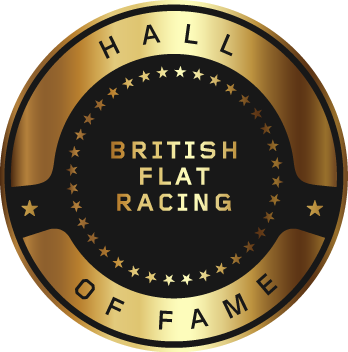History made in 1972 with first women’s Flat race
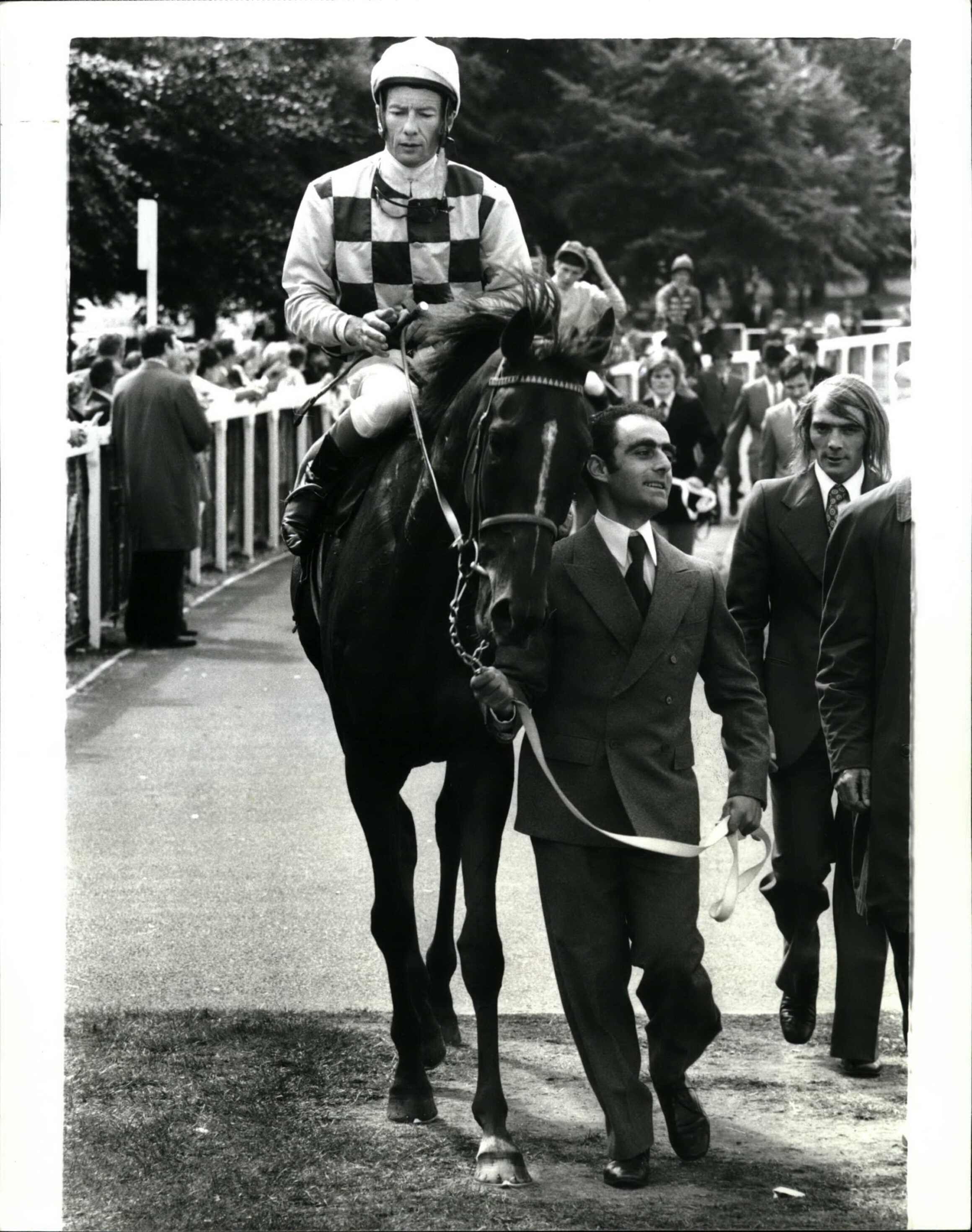
History was made at Kempton Park on 6th May 1972 with the first women’s Flat race to be
held in Britain under Jockey Club rules. The Goya Stakes, over nine furlongs (1800m), had 21
runners and was won by 50-1 outsider Scorched Earth, ridden by 23-year-old Meriel Tufnell.
As if to prove it was no fluke, the combination also won the second ladies’ race, run later that
month at Folkestone.
In August, having won the Prix Ganay and the Coronation Cup, Mill Reef suffered a multiple
fracture of his near foreleg on trainer Ian Balding’s Kingsclere gallops. Such a catastrophic
injury would normally have spelt the end, however, although he would not race again, superb
veterinary skills ensured that he survived to enjoy a hugely successful career at stud.
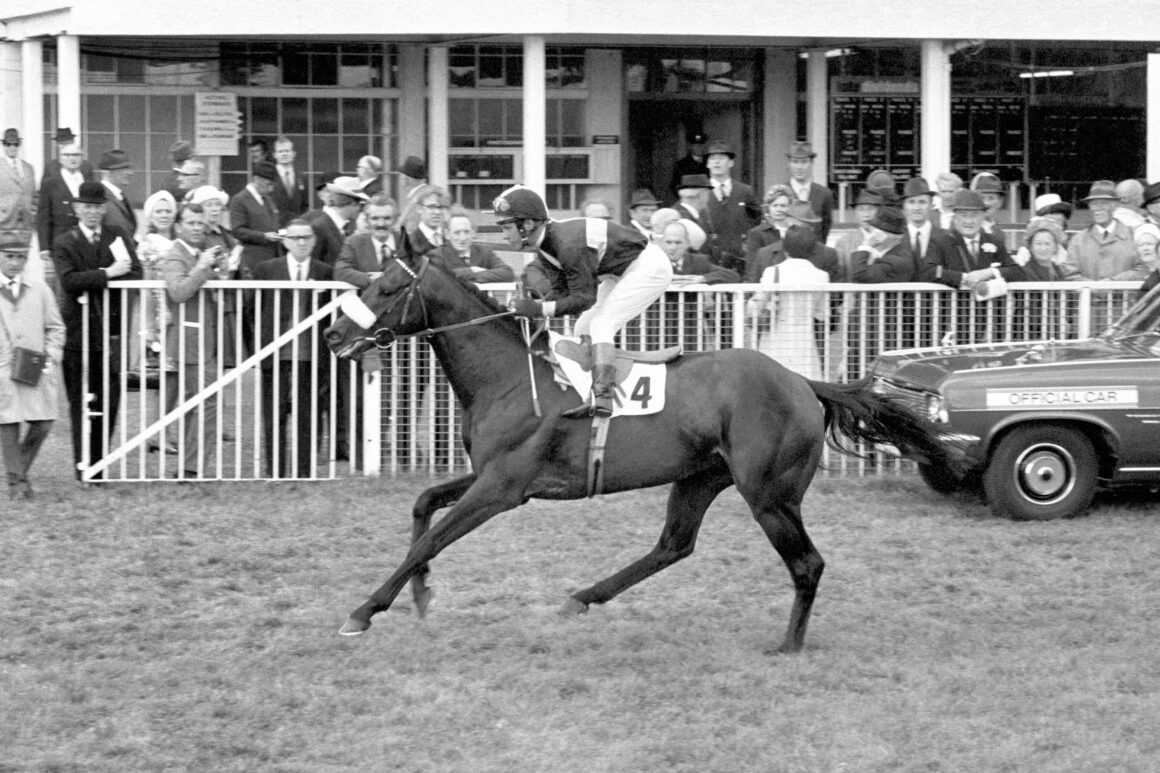
Mill Reef lands the Coronation Cup.
Meanwhile, Brigadier Gerard emulated Mill Reef’s achievements of the previous year by
winning the Eclipse Stakes and the King George VI and Queen Elizabeth Stakes. The latter
was the Brigadier’s fifteenth win, but his undefeated record came to an end in the inaugural
running of the Benson and Hedges Gold Cup at York (known today as the Juddmomte
International). Starting at 3-1 on, he was beaten three lengths by that year’s Derby winner
Roberto, partnered by Panamanian-born jockey Braulio Baeza, who was having his first ride
in Britain.
It was to be the sole defeat of Brigadier Gerard’s eighteen-race career, for he signed off by
winning both the Queen Elizabeth II Stakes and the Champion Stakes for the second time.
Dahlia hits dizzy heights
Whereas the previous three years had been dominated by three great colts, 1973 was the year
of one filly, Nelson Bunker Hunt’s champion Dahlia, who became a racing star in four
countries and two continents. Trained in France by Maurice Zilber and ridden throughout by
Australian jockey Bill Pyers, she began by winning the Prix Saint-Alary at Longchamp. In the
space of a week during July, she slammed English 1,000 Guineas and Oaks heroine Mysterious
by three lengths in the Irish Oaks, then crushed the best of Europe’s older horses by six lengths
in the King George VI and Queen Elizabeth Stakes to become the first filly to win the race in
its 24-year history. Later that season she took on the top American horses on their home turf
and recorded a 3¼-length victory in the Washington D.C. International at Laurel Park,
Maryland.
Morston, a 25-1 outsider, owned and trained by Arthur Budgett, won that year’s Derby. He
thus emulated his half-brother Blakeney, who had triumphed for the same owner-trainer four
years earlier. Morston was making only his second start, having won a Lingfield maiden on his
debut the previous month. He never ran again due to injury.
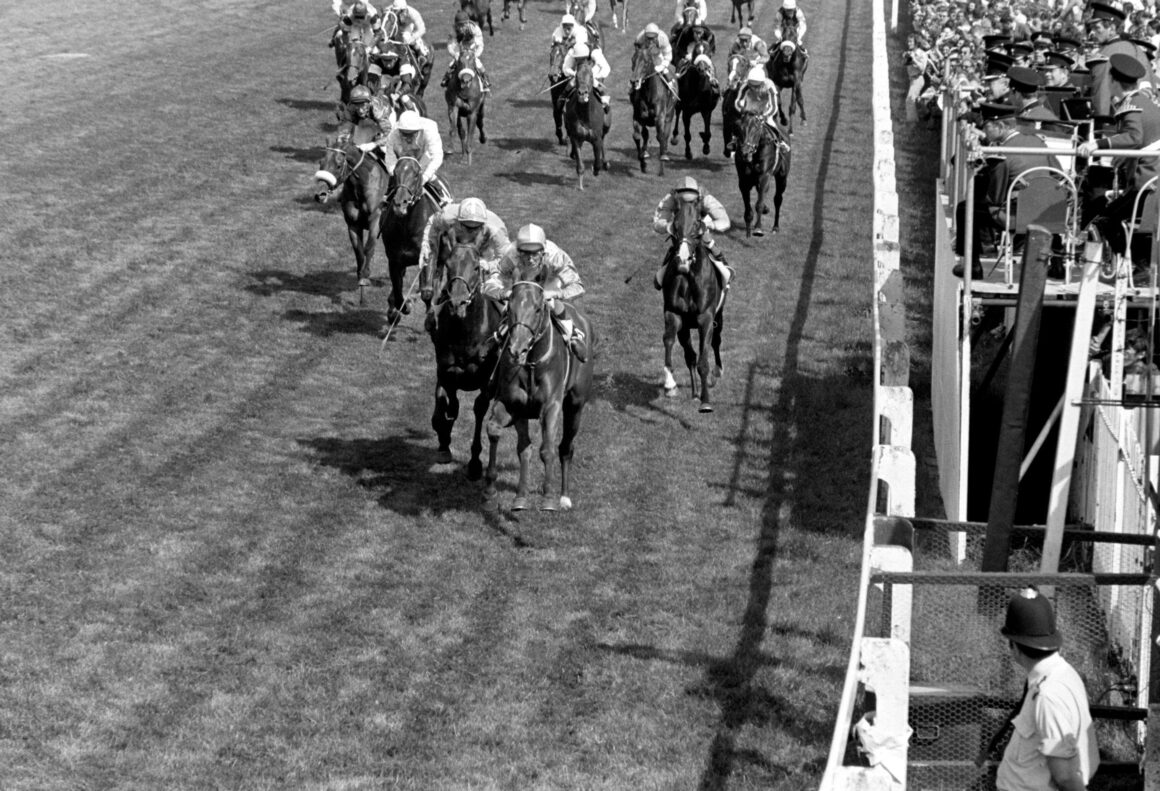
Morston (25/1) lands The Derby in 1972.
The year’s most unusual achievement was that of a moderate ten-year-old gelding named
Threadbare, who, in August 1973, became the first horse to win a hurdle, chase and Flat race
in three consecutive racing days. Having won a selling hurdle on the Saturday and selling chase
on the Monday, both at Newton Abbot, Threadbare reappeared at Wolverhampton on Tuesday
7th August to land the nine-furlong (1800m) Codsall Selling Handicap by six lengths.
Eddery edges Piggott in thrilling jockey championship
If Morston had been a surprise winner of the 1973 Derby, there was an even bigger shock
twelve months later when 50-1 outsider Snow Knight, beaten fair and square in two classic
trials, was sent to the front at halfway by jockey Brian Taylor and never headed, coming home
two lengths clear of 20-1 shot Imperial Prince.
The Queen’s filly Highclere, ridden by Joe Mercer, was a highly popular winner of the 1,000
Guineas, scraping home by a short-head from the Peter Walwyn-trained Polygamy, the mount
of Pat Eddery. Polygamy and Eddery subsequently gained compensation for that narrow defeat
by winning the Oaks.
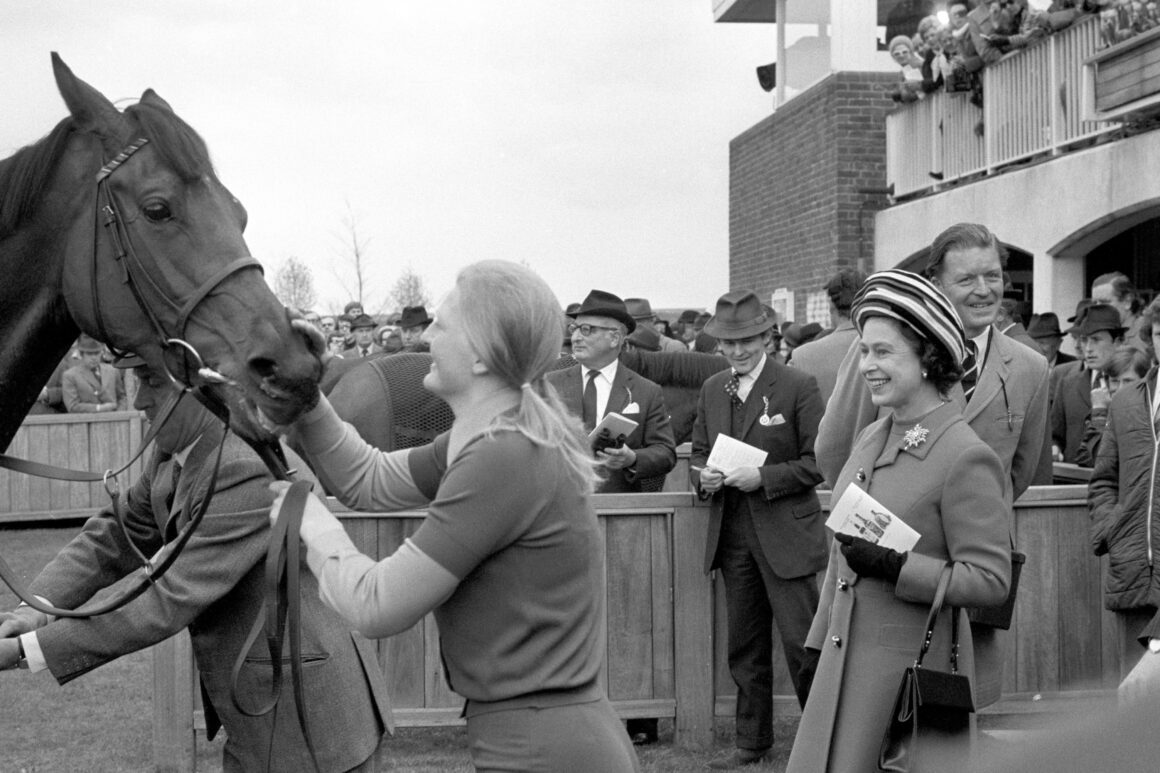
All smiles for Queen Elizabeth II after Highclere wins the 1000 Guineas.
Dahlia, partnered now by Lester Piggott, became the first horse to win the King George VI and
Queen Elizabeth Stakes twice. She beat Highclere with ease by 2½ lengths, with French Derby
runner-up Dankaro third of the ten runners. Dahlia followed that triumph by winning the
Benson and Hedges Gold Cup, in which she defeated Imperial Prince and Snow Knight, with
Highclere back in sixth.
Pat Eddery ended the season as champion jockey for the first time with 148 winners, five more
than Lester Piggott.

